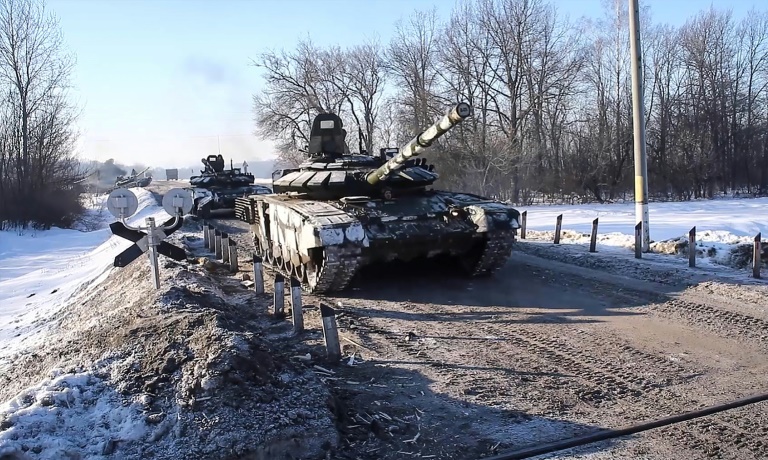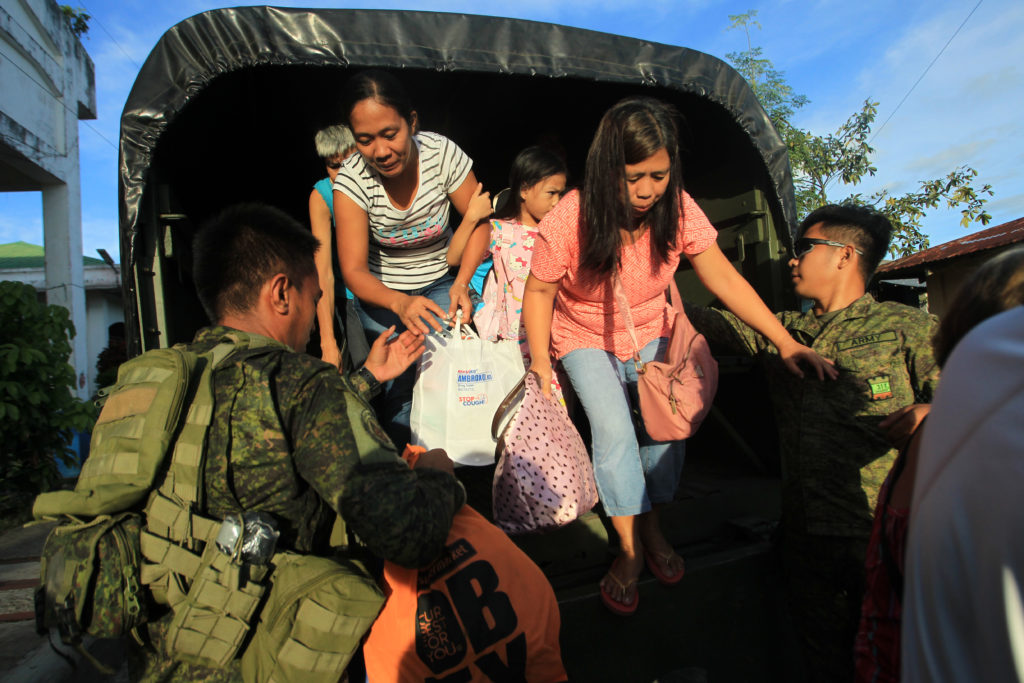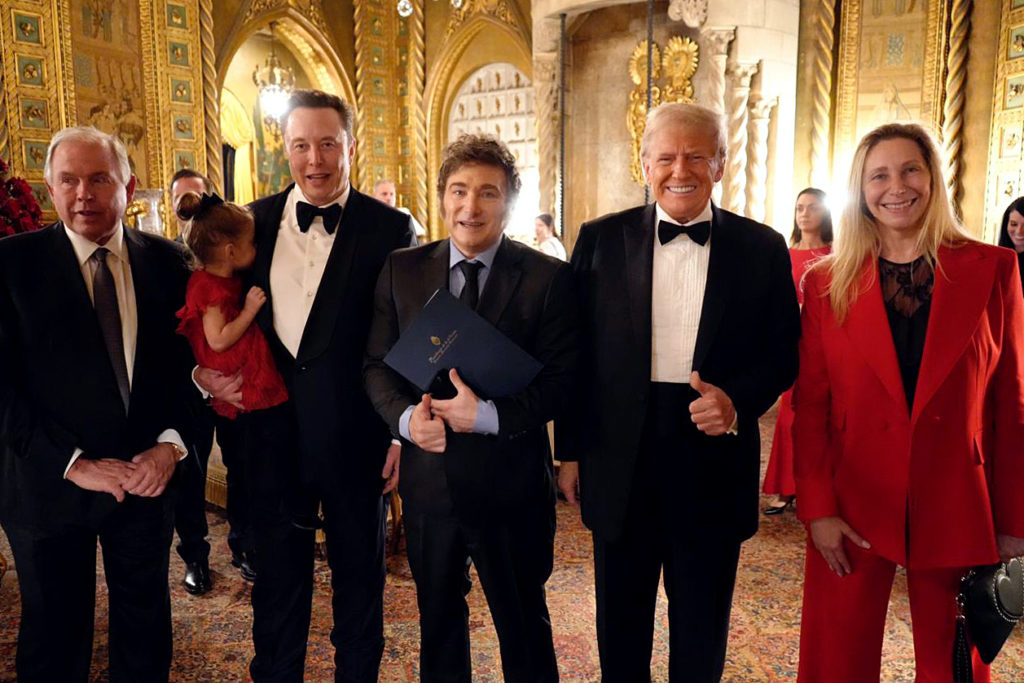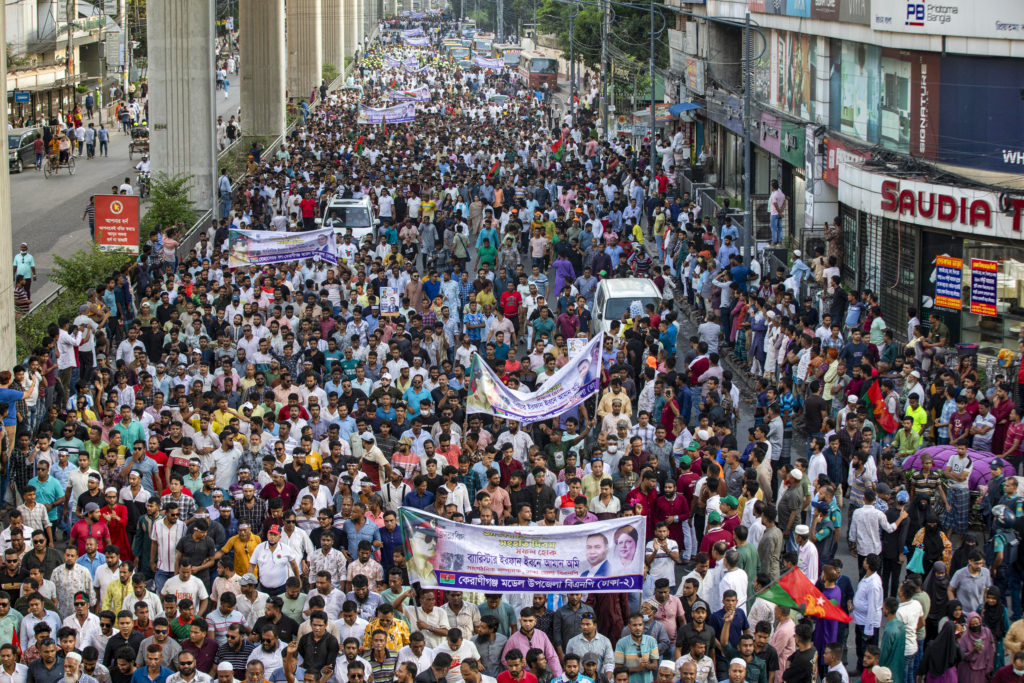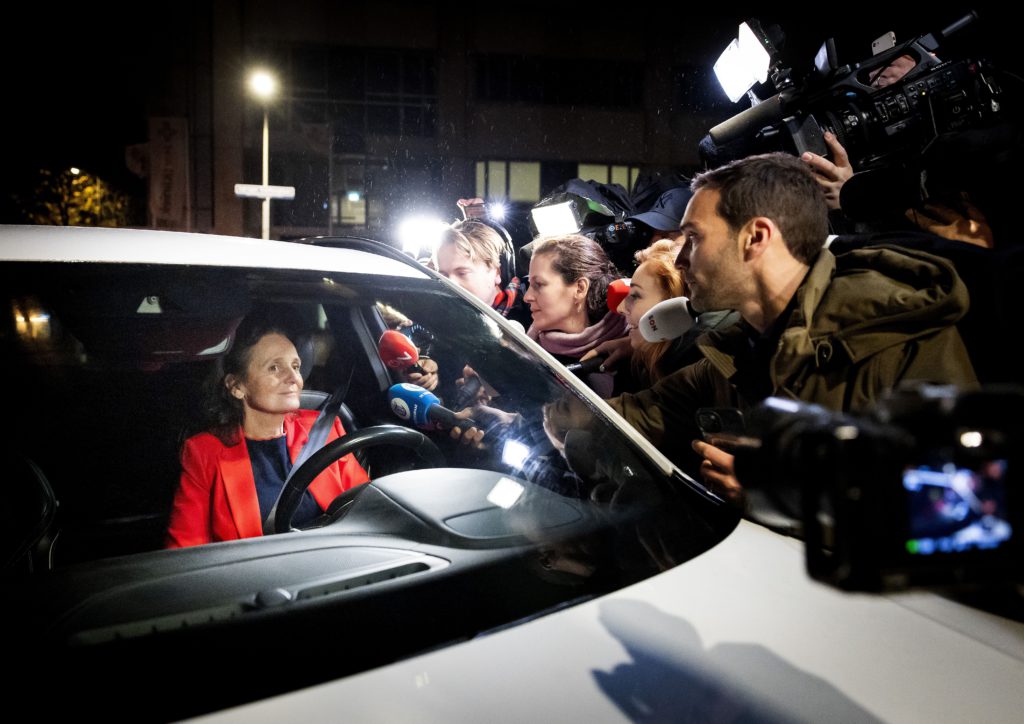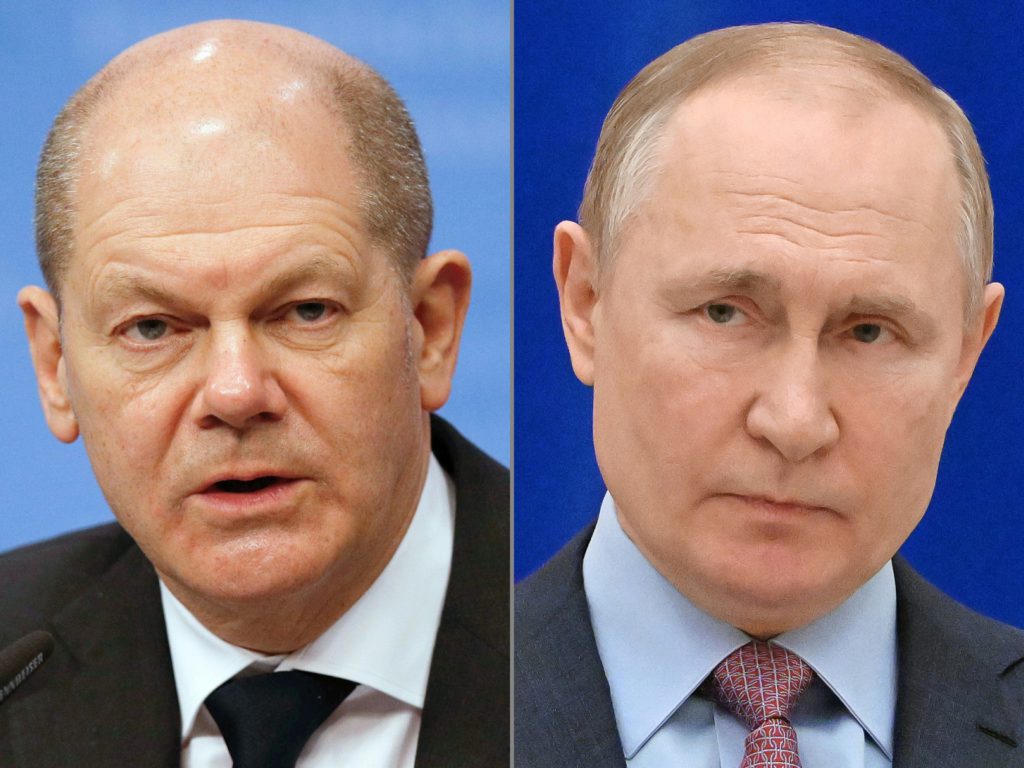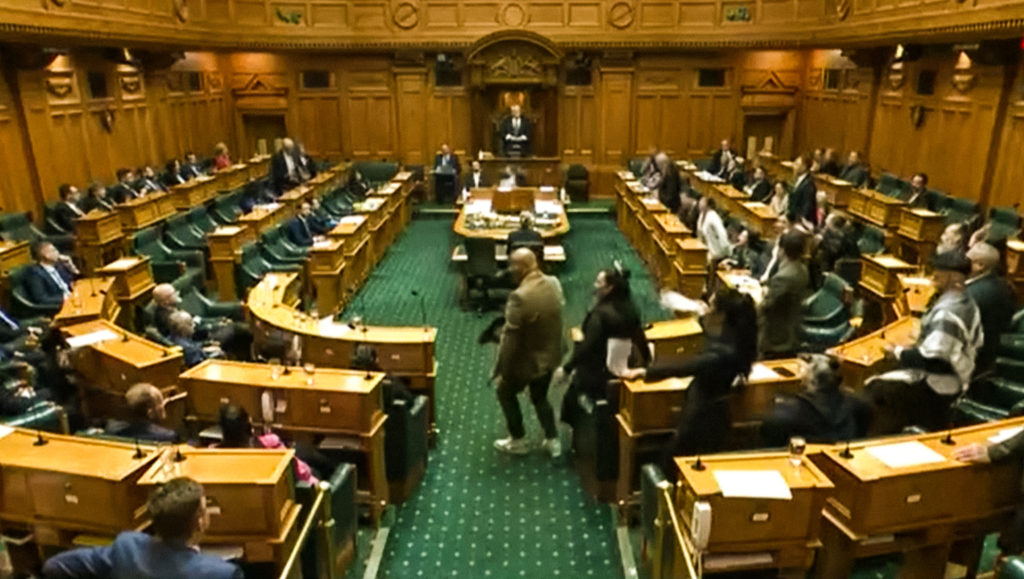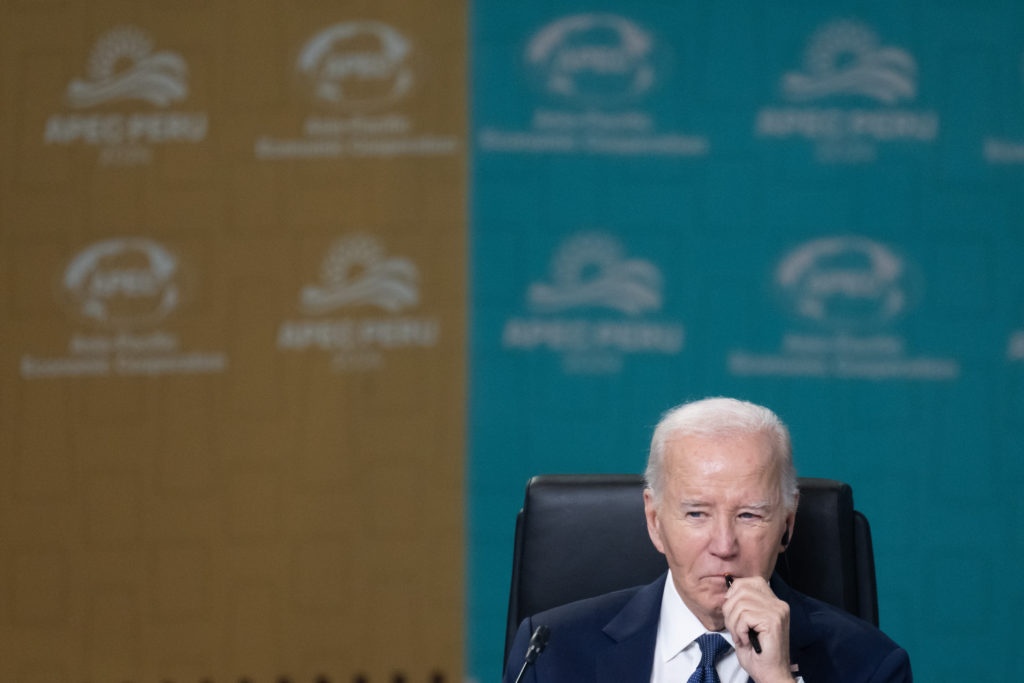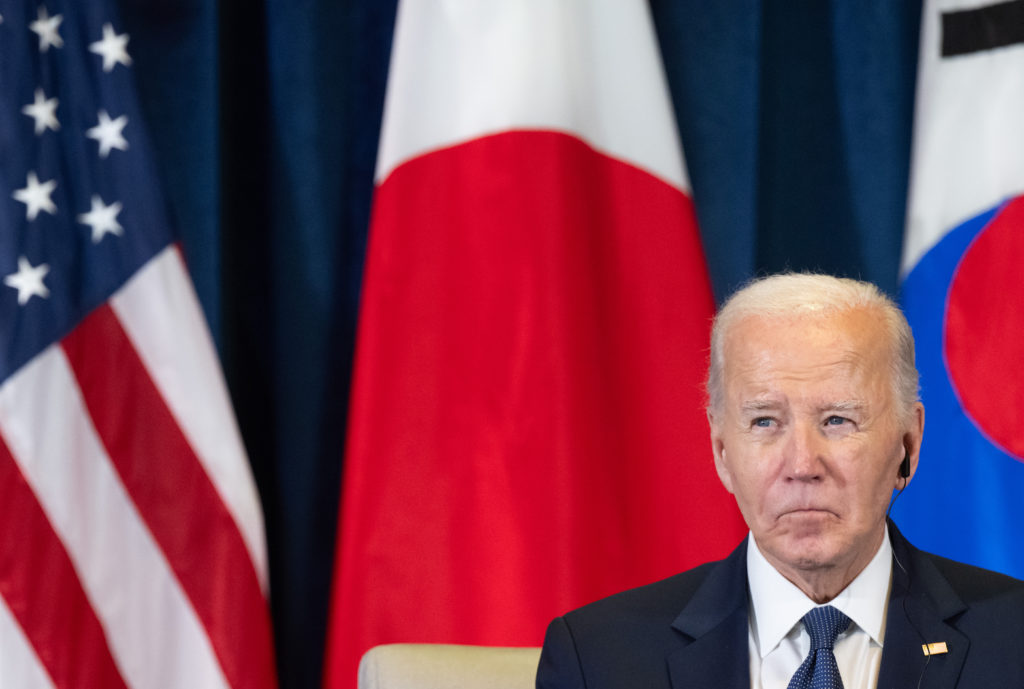The United States called Tuesday for verifiable proof of Russian claims that it was pulling back some of the troops deployed on its borders with Ukraine.
In the first announced withdrawal from among more than 100,000 troops Russia massed on the Ukrainian border, the defence ministry in Moscow said some soldiers and hardware were returning to bases at the end of planned exercises.
Western leaders have accused Moscow of positioning the troops in advance of a possible invasion of pro-Western Ukraine, warning that any attack would be met with severe economic sanctions.
After a meeting Tuesday with German Chancellor Olaf Scholz in Moscow, President Vladimir Putin said Russia “of course” did not want war, and was willing to look for solutions with the West.
“We are ready to work further together. We are ready to go down the negotiations track,” Putin told a joint press conference with Scholz, confirming a “partial pullback of troops”.
In response, Scholz said: “That we are now hearing that some troops are being withdrawn is in any case a good sign.”
“For Europeans it is clear that lasting security cannot be achieved against Russia but only with Russia.”
US Secretary of State Antony Blinken told Russian counterpart Sergei Lavrov Tuesday that Washington wanted to see proof of the withdrawals.
In their phone call, Blinken “emphasized the need to see verifiable, credible, meaningful de-escalation,” the State Department said in a statement.
Lavrov stressed the need to continue “joint work” and called for “pragmatic dialogue,” his ministry said.
– ‘Reason for hope’ –
Moscow released few details about the troop withdrawal and there was no immediate outside confirmation.
In Brussels, NATO chief Jens Stoltenberg said while there was not yet “any sign of de-escalation on the ground” there were “grounds for cautious optimism”.
Germany’s Foreign Minister Annalena Baerbock said “every real step of de-escalation would be a reason for hope”.
British Prime Minister Boris Johnson said there were “signs of a diplomatic opening” with Russia, but that the intelligence on a possible invasion was “still not encouraging”.
The crisis — the worst between Russia and the West since the Cold War ended — reached a peak this week, with US officials warning that a full-scale invasion, including an assault on Kyiv, was possible within days.
Washington took the dramatic step on Monday of relocating its embassy in Kyiv to the western city of Lviv, having already urged US citizens to leave Ukraine.
The Russian defence ministry announced the partial withdrawal on Tuesday morning, saying some forces deployed near Ukraine had finished their exercises and were packing up to leave.
But the extent of the pullback and the numbers involved were not immediately clear.
Kremlin spokesman Dmitry Peskov told reporters the pullback was the “usual process” after military exercises and blamed the West for the crisis.
“This is nothing but a totally unprecedented campaign to provoke tensions,” he said, calling decisions to move embassies to western Ukraine “ostentatious hysteria”.
– ‘Believe what you see’ –
Ukraine said deterrence efforts against Russia appeared to be working but that it would watch to see if any Russian withdrawal was real.
“We have a rule: don’t believe what you hear, believe what you see,” Foreign Minister Dmytro Kuleba told reporters. “When we see a withdrawal, we will believe in a de-escalation.”
French President Emmanuel Macron and American counterpart Joe Biden also agreed Tuesday on the need to verify the Russian claims, during a one-hour phone conversation, the French presidency said.
On Tuesday evening, Ukraine said that the sites of the country’s defence ministry and armed forces as well as two banks had been hit by a cyberattack that could have Russian origins.
“It cannot be excluded that the aggressor is resorting to dirty tricks,” Ukraine’s communications watchdog said in reference to Russia.
In a separate move likely to anger Kyiv, Russian lawmakers on Tuesday voted to urge Putin to recognise two breakaway regions in eastern Ukraine as “sovereign and independent states”.
This would allow Russia to abandon the Minsk agreements peace plan for eastern Ukraine and potentially move in Russian troops — giving Putin a strong hand to play in any future negotiations with Kyiv.
The European Union “strongly” condemned such a move, saying it would violate the Minsk agreements that Moscow had signed up to.
French Foreign Minister Jean-Yves Le Drian it would amount to “an attack without weapons” on the “unity and integrity of Ukraine”.
Russia has repeatedly blamed the Ukraine crisis on the West, saying the United States and western Europe are ignoring Russia’s legitimate security concerns.
The Kremlin insists NATO must give assurances that Ukraine will never be admitted as a member and roll back its presence in several eastern European and ex-Soviet countries.
Russia already controls the Crimean Peninsula that it seized from Ukraine in 2014 and supports separatist forces who have taken control of parts of eastern Ukraine, in a conflict that has claimed more than 14,000 lives.

